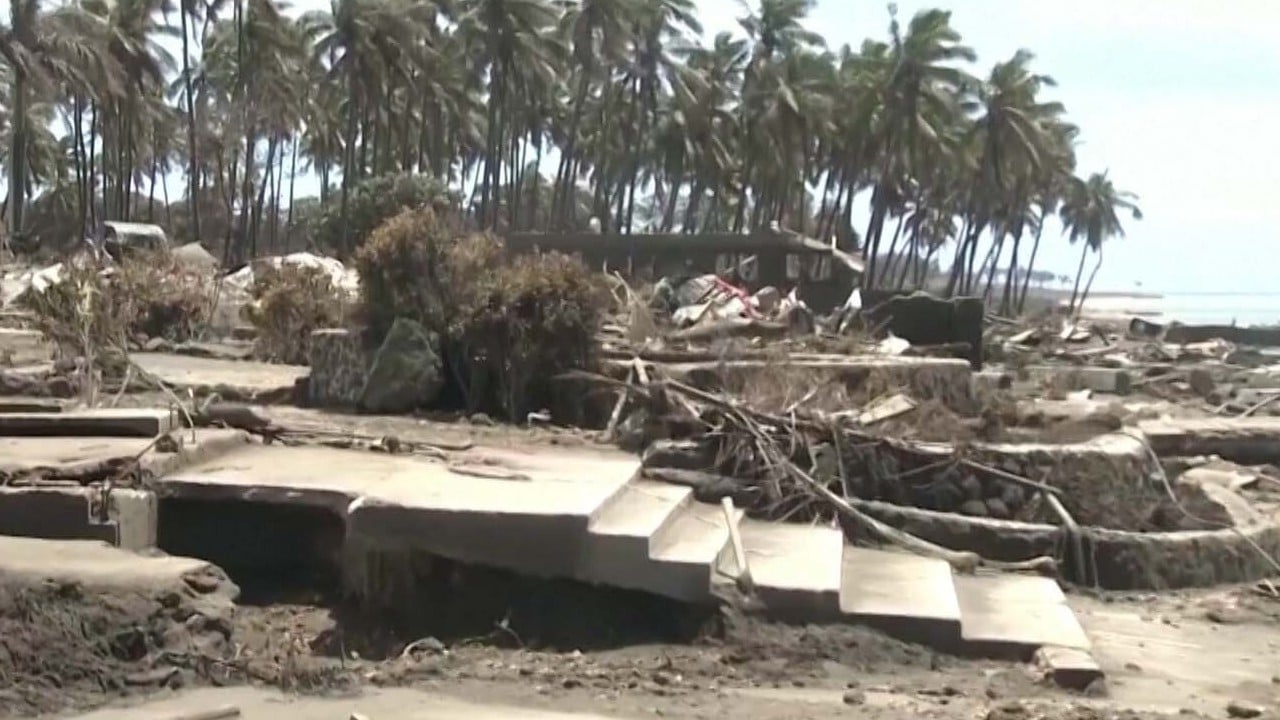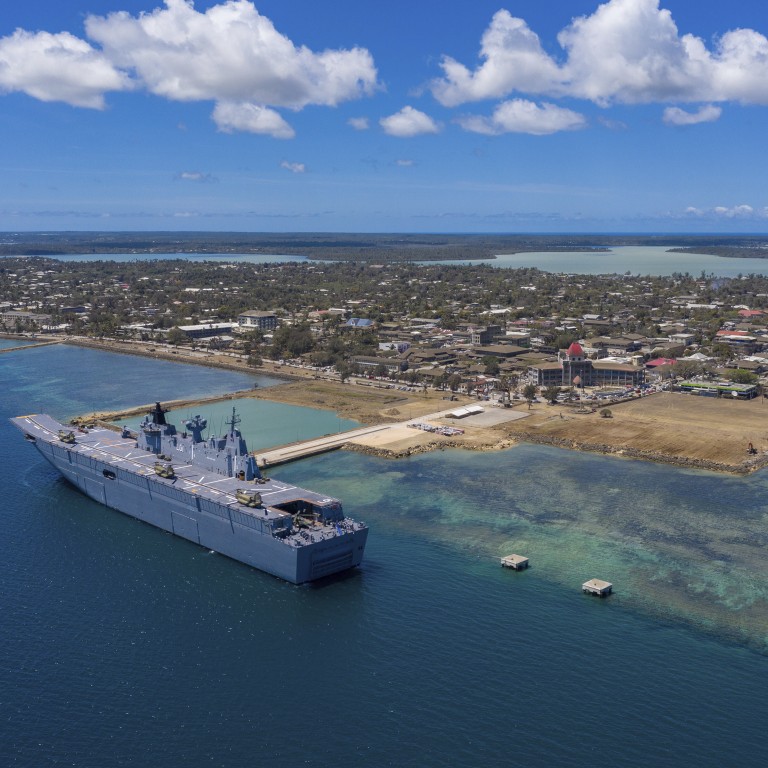
Coronavirus: Australia says ‘no evidence’ aid warship brought infections to volcano-hit Tonga
- Tonga imposed a lockdown after two workers in Nuku’alofa’s port, where aid has been pouring in since the January 15 volcanic eruption, tested positive for Covid-19
- A senior general said the outbreak ‘doesn’t appear to have evolved from the virus-stricken HMAS Adelaide’ that docked in the island to unload supplies
Australian defence chiefs on Wednesday said a warship delivering aid to Tonga was not the source of an outbreak that has plunged the previously coronavirus-free Pacific kingdom into lockdown.
They were the first community cases recorded in the nation of 100,000 people, with officials later confirming another three family members, including two children, also had the virus and were in isolation.
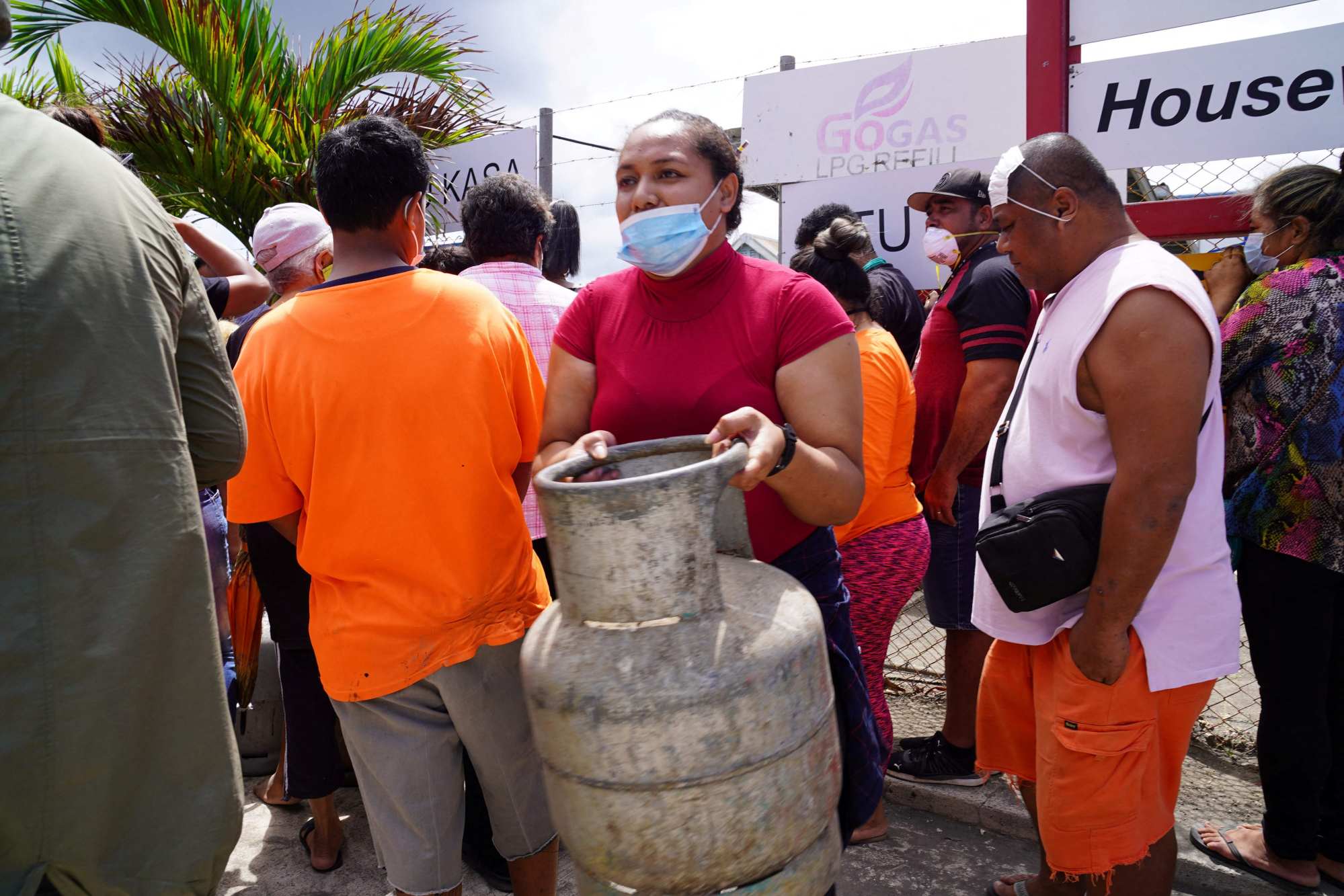
Tonga had previously recorded only one case of the virus in quarantine at the border, which was deemed a historical case with the individual no longer considered infectious at the time of testing.
Kupu, a journalist at Tongan radio station BroadcomFM, said locals queued at shops and banks on Wednesday morning ahead of the lockdown beginning at 6pm, with panic buying occurring as people tried to stock up on food.
It is unknown how long the country will be in lockdown, with health officials to provide an update every 48 hours, according to local news site Matangi Tonga.
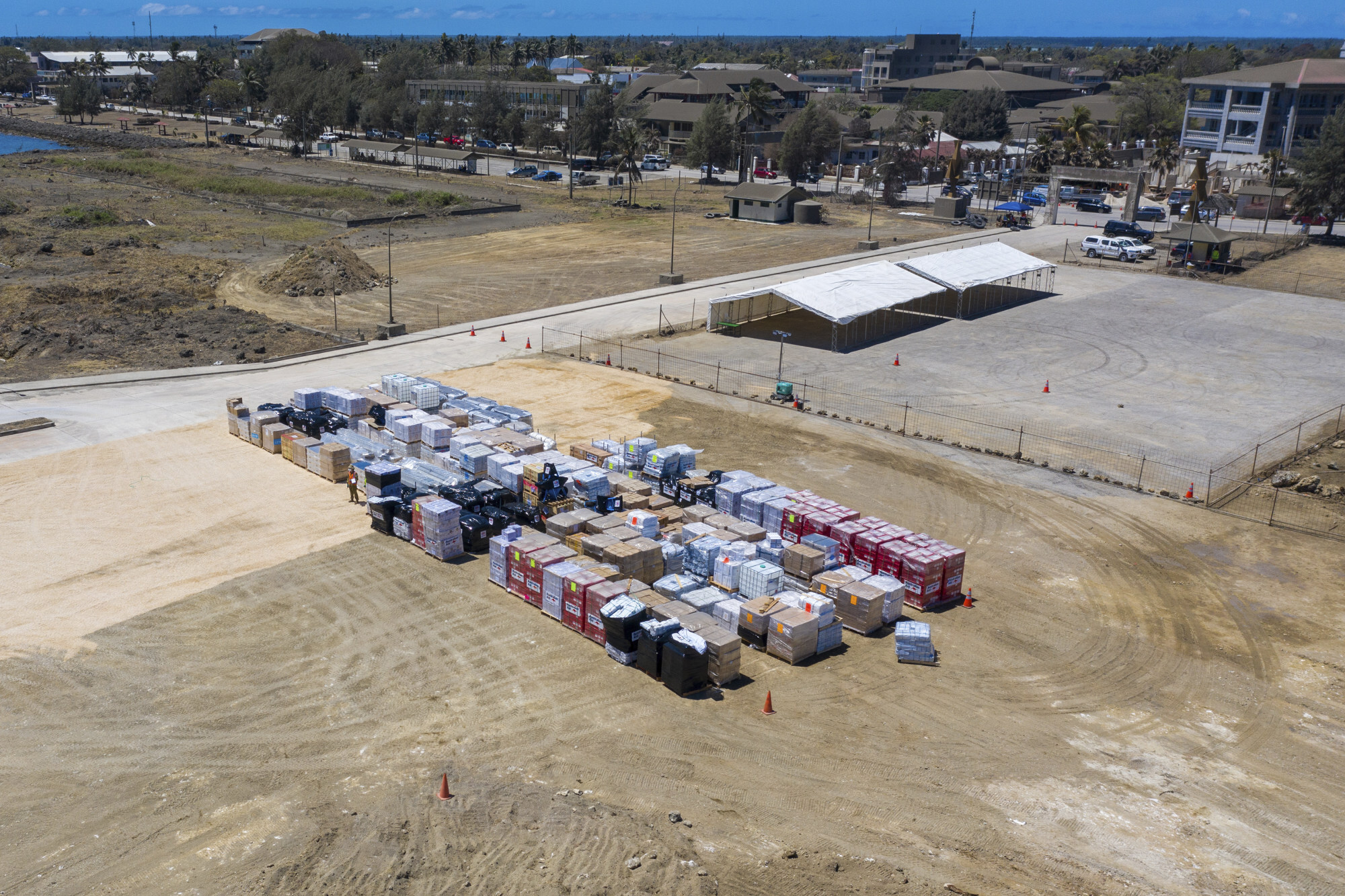
Australia, New Zealand, the US, China, France, Fiji and Britain have all sent ships carrying relief supplies including drinking water, medical kits and engineering equipment.
Australia’s HMAS Adelaide docked in Nuku’alofa to unload supplies last week despite a coronavirus outbreak among its crew.
‘We couldn’t even hear each other’: Tongan recounts deafening volcano blast
All offshore deliveries are subject to strict “no-contact” protocols in a bid to keep the virus at bay, including leaving goods in isolation for three days before they are handled by Tongans.
The Australian Defence Force’s operations chief, Lieutenant General Greg Bilton, said the Nuku’alofa outbreak “doesn’t appear to have evolved from the Adelaide”.
Bilton said the warship, which has recorded 51 Covid-19 cases among its 630-strong crew since leaving Brisbane last month, berthed in a different area of the harbour from where the two local men were working.
“We unloaded in a manner that was Covid-friendly, contactless, in line with arrangements made with Tongan officials at the wharf,” Bilton told Sky News Australia. “So I don’t think there’s any connection, there’s no evidence of that.”
He said the Tongan government had asked the Australians to take samples from the infected men away for analysis to identify the strain of coronavirus and help determine its source.
Prime Minister Siaosi Sovaleni announced late on Tuesday that Tonga would enter a national lockdown at 6pm on Wednesday.
The stay-at-home order means all businesses and schools must close, with only essential services allowed to operate.
Tonga closed its borders in early 2020 as the coronavirus pandemic swept the globe.
Until this week, it had recorded just one case of Covid-19, a man who returned from New Zealand last October and has since fully recovered.
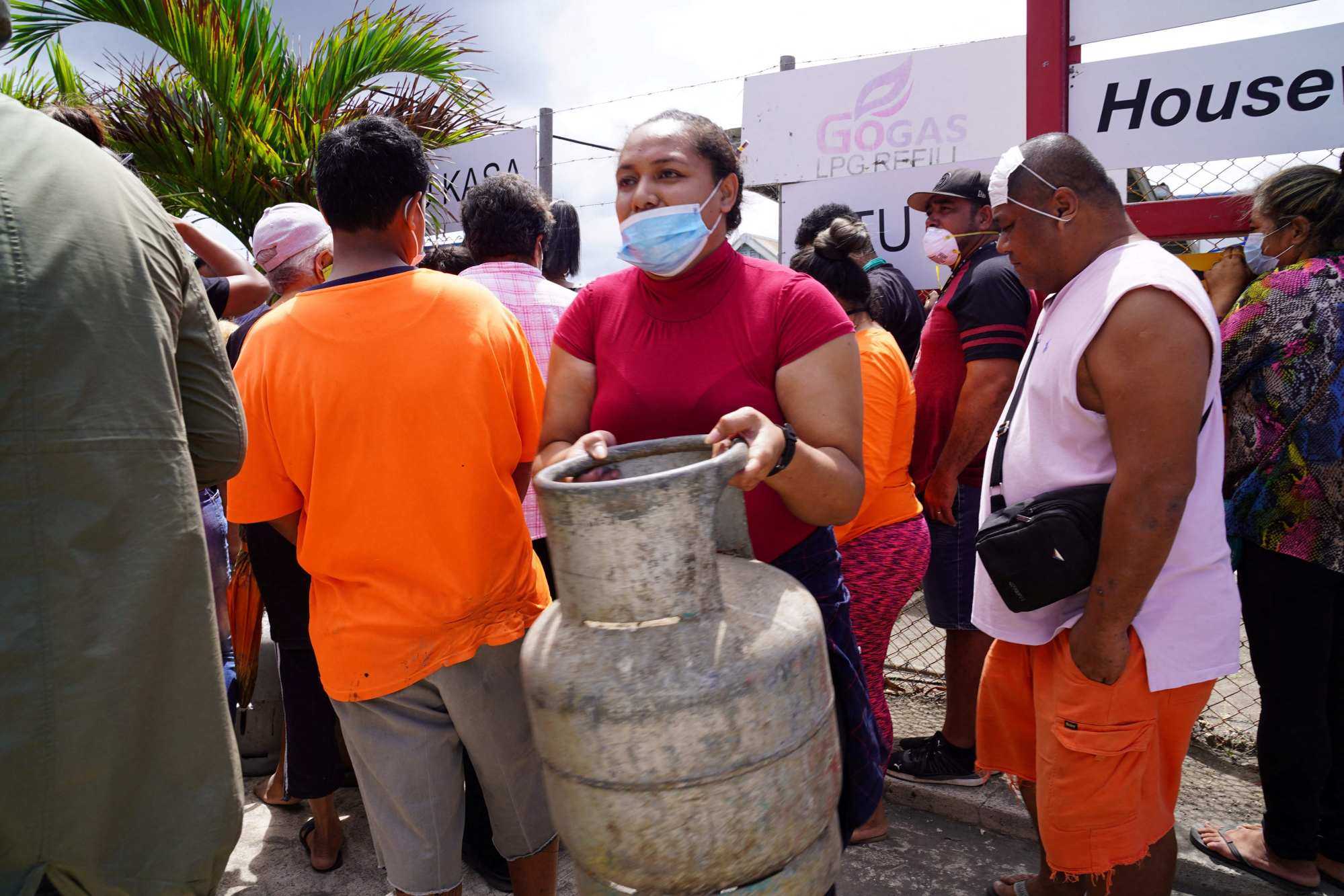
The blast from the Hunga Tonga-Hunga Ha’apai volcano, which lies about 65km north of Nuku’alofa, forced a slight relaxation of the border rules to deal with a situation the Tongan government has described as an “unprecedented natural disaster”.
The eruption, one of the biggest recorded in decades, generated massive tsunami waves and blanketed the island nation in toxic ash, claiming three lives.
A UN update late last week said drinking water remained the main challenge facing Tonga and about 1,500 people were still displaced.
Communications remain patchy after the eruption damaged an undersea cable that connects Tonga to the rest of the world.
Officials said a specialist cable repair ship was expected to arrive this week and would take at least two weeks to fix the damage.
Australia’s hospitalisation rate falls
Australia’s Covid-19 hospitalisation rate fell to its lowest in nearly three weeks on Wednesday, while a steady rate of daily infections raised hopes the worst of an outbreak fuelled by the Omicron variant may have passed.
Hospital cases fell to about 4,600 on Wednesday, with all states seeing a dip in admission numbers, after a peak of nearly 5,400 a week ago.
“We’ve seen the peaks of Omicron, I think, come through in [New South Wales and Victoria],” Prime Minister Scott Morrison, who is under pressure over his handling of the Omicron wave, told a media briefing.
With Covid-19 hospitalisation stabilising, Morrison said he had tasked health officials to check the impact on the medical system before easing more border curbs. Morrison said last week he hoped international borders may fully reopen “before Easter”.
Airlines and tourism businesses, already battered by rounds of lockdowns over the past two years, are hoping for a quick reopening to all tourists.
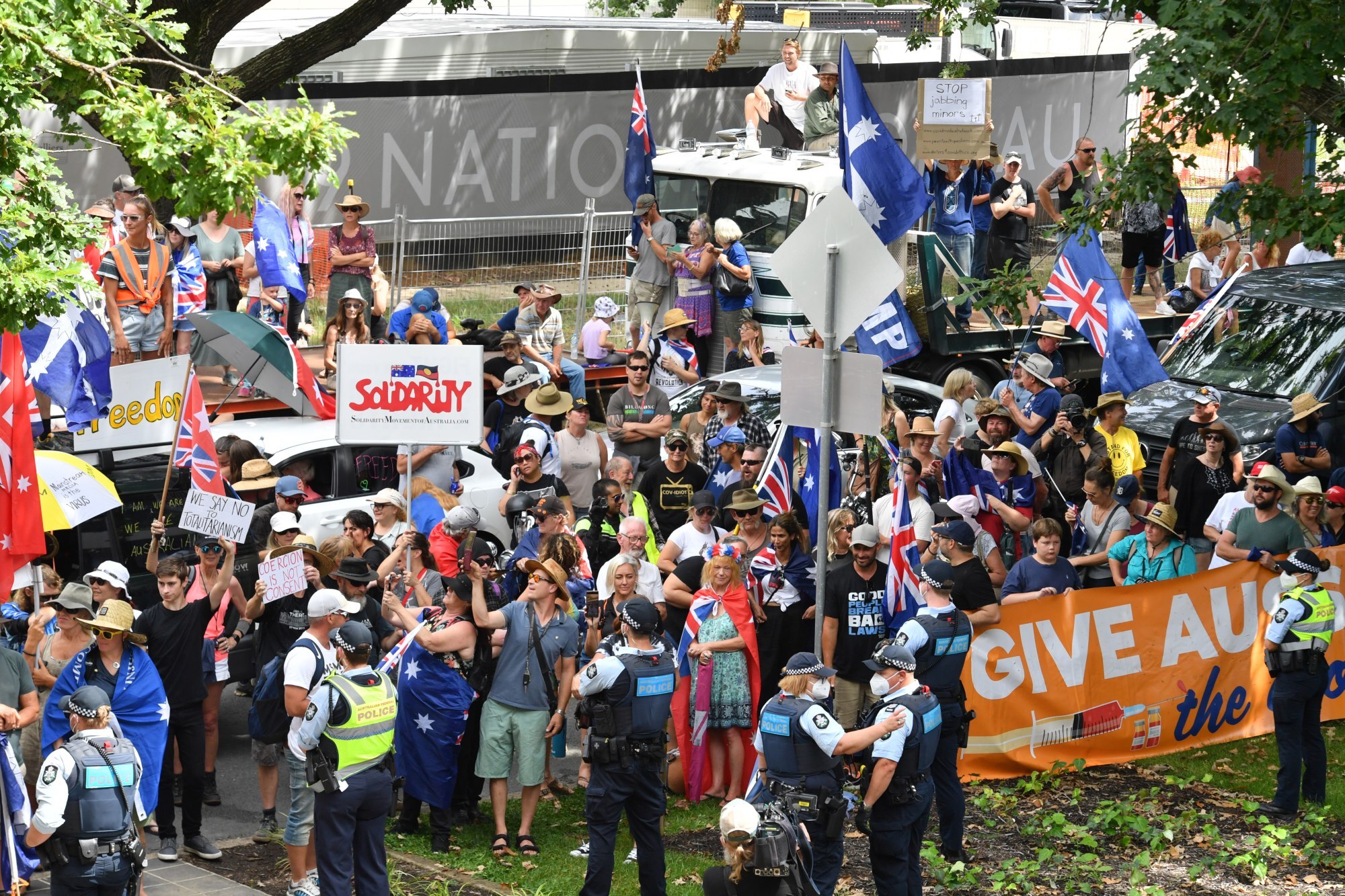
Fuelled by the fast-spreading Omicron, Australia’s total infections surged over the past two months, most in its most populous states of New South Wales (NSW) and Victoria, with about 2.3 million cases recorded.
Until then, it had only detected some 200,000 infections since the pandemic began.
About 8.2 million boosters have been administered as of Wednesday, shots for half of the eligible population, with authorities pressing people to get their third dose soon to mitigate the threat of severe illness from Omicron.
NSW and South Australia said they would allow a staged return of non-urgent surgeries from Monday after hospitalisation rates steadied.
Australia on Wednesday reported 70 new deaths, down from a record of 98 set last Friday, and just over 40,000 new cases.
New Zealand reverses entry ban on pregnant woman after outcry
New Zealand to offer booster shots after 3 months
New Zealanders will be able to get a vaccine booster shot after three months rather than four months, starting from February 4, according to an emailed statement from Covid Response Minister Chris Hipkins.
The announcement means 1 million more people will be eligible for a booster from this weekend. More than 1.3 million people in the nation of about 5.1 million have already received a third shot.
Japan to assess Pfizer’s Covid-19 pill; cases rise
Formal approval is expected to follow soon afterward. Merck & Co.’s antiviral pill molnupiravir was approved for use in Japan in December.
Meanwhile, the nation confirmed a record 94,908 coronavirus cases on Wednesday, eclipsing the previous record logged late last week by nearly 10,000 and exceeding the 90,000 mark for the first time, as the highly transmissible Omicron variant continues to wreak havoc across the country.
While Prime Minister Fumio Kishida has said he is not considering declaring a state of emergency in Tokyo despite the recent spike in infections, the capital’s daily count continued to climb, exceeding the previous record last Friday by nearly 4,000 cases to reach 21,576.
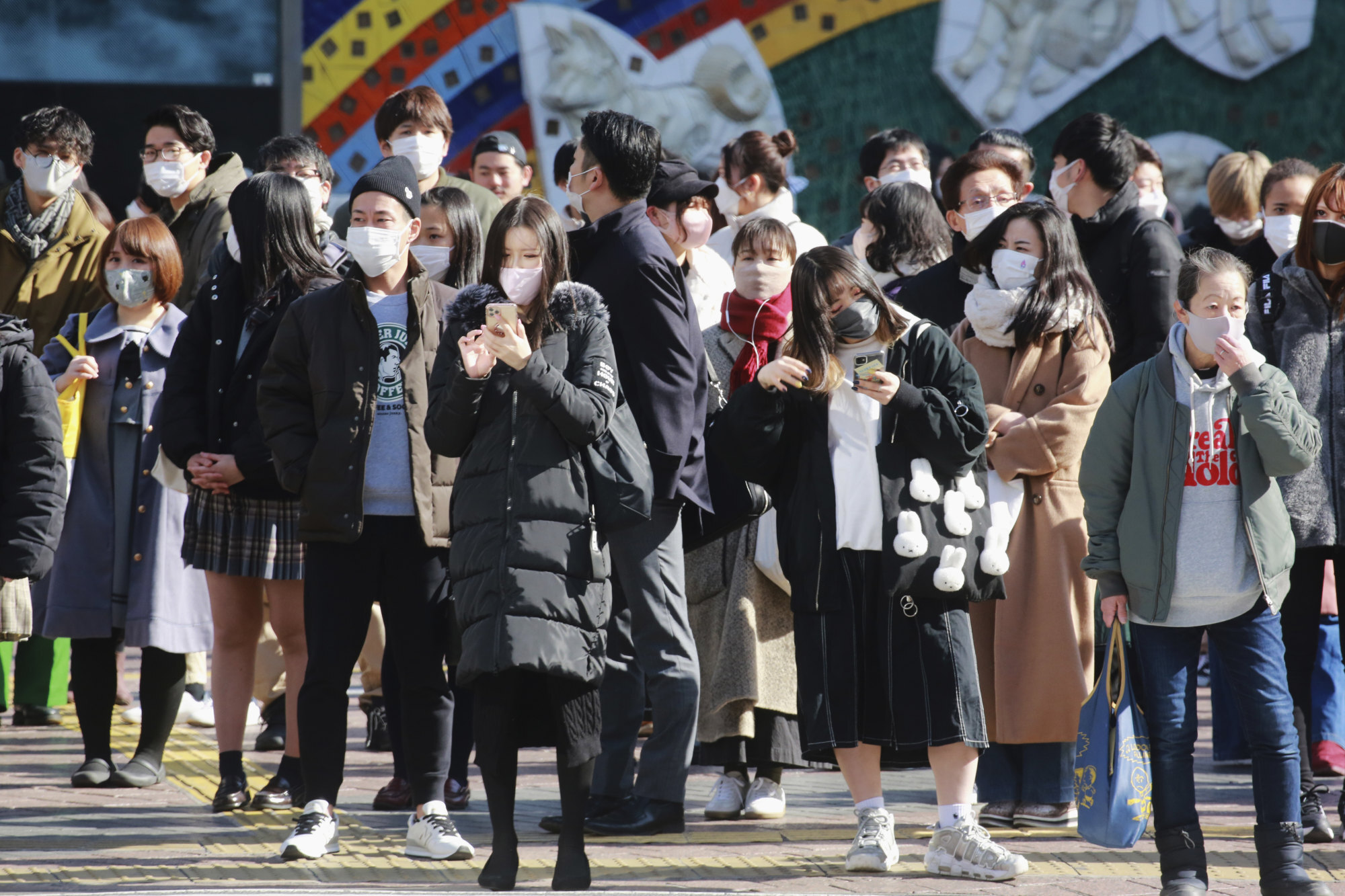
The closely watched usage rate of hospital beds reserved for Covid-19 patients edged up to 51.4 per cent. Officials previously said that a state of emergency would be needed if the rate reached 50 per cent, but now say the decision will depend on the number of serious cases and other factors.
The capital and most of Japan are now under curbs to contain spread of the virus. The western prefecture of Osaka reported 11,171 new infections, down from a record 11,881 on Tuesday.
Chief Cabinet Secretary Hirokazu Matsuno said on Wednesday the government is not planning to declare a state of emergency but remains vigilant.
Bali plans reopening for international tourists
Popular Indonesian destination Bali plans to reopen to international tourists this week, according to government officials.
Coordinating Minister of Maritime Affairs Luhut Pandjaitan said on Monday that fully vaccinated international tourists from all countries will be able to enter Bali starting on Friday. The island will also cut down its mandated quarantine period from seven days to five.
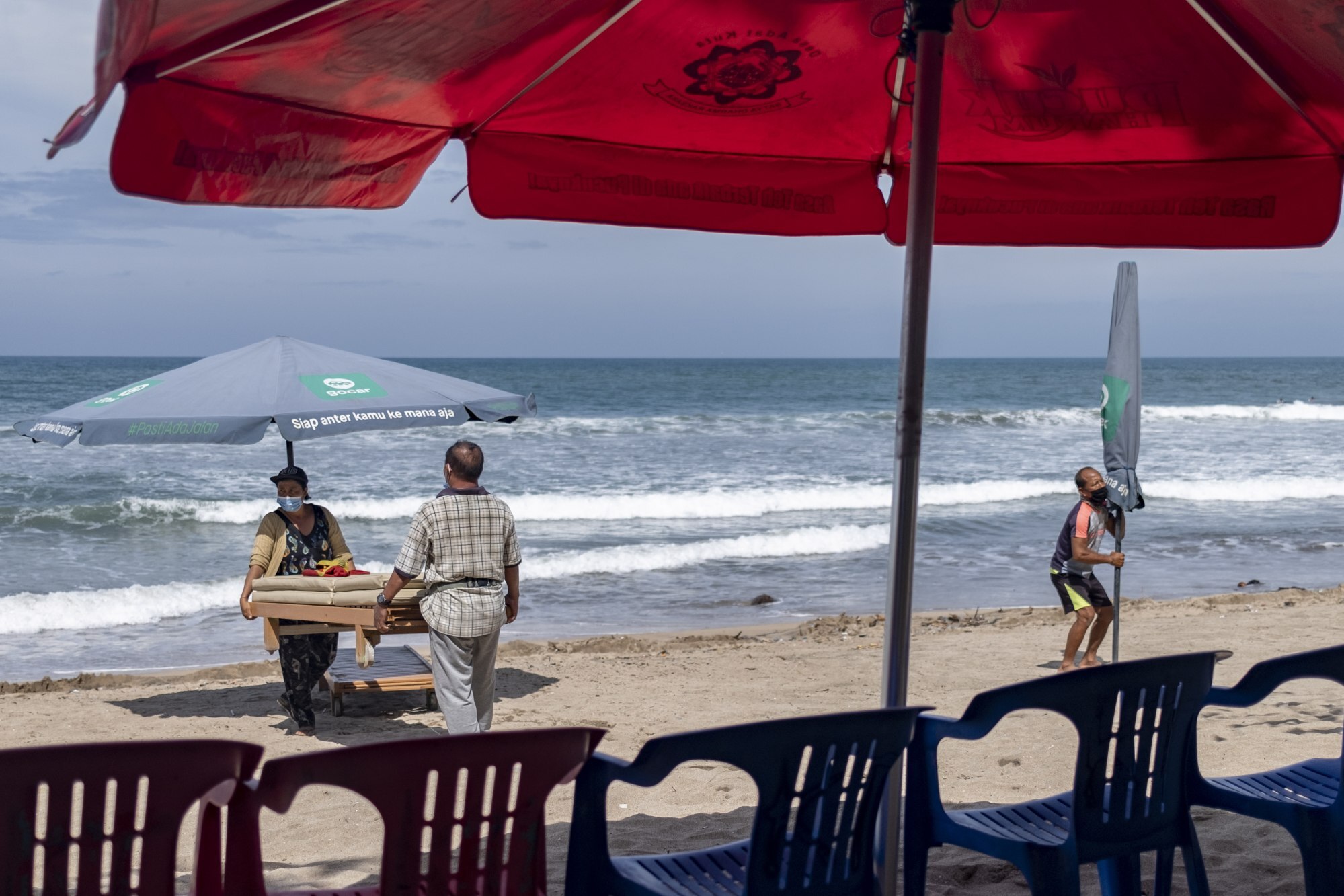
The change comes after months of strict travel restrictions. Currently, US travellers can only enter Indonesia with a valid residence permit or certain types of visas, according to the US Embassy.
Bali reopened to domestic tourists in the middle of 2020, and in mid-October began allowing tourists from just 19 countries, not including the United States, to enter.
The reopening is meant to boost Bali’s economy, which relies heavily on tourism. More than 6 million foreigners travelled to the island in 2019.
Reporting by Agence France-Presse, Bloomberg, Reuters, Kyodo, Tribune News Service

